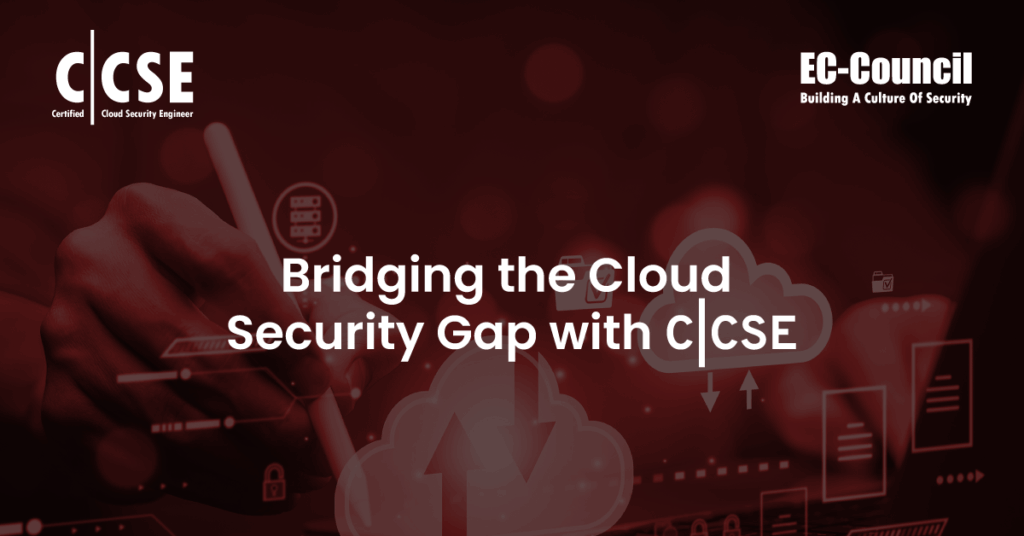As organizations increasingly adopt multi-cloud environments, the need for specialized and practical knowledge in securing these platforms has become vital. Speaking to EC- Council’s Cyber-Talks, Robson Medeiros dos Santos shares his professional perspective on the importance of cloud security training in today’s enterprise landscape. Robson discusses the unique strengths of the EC-Council Certified Cloud Security Engineer (CCSE) program, highlighting its vendor-neutral approach to the security of prominent service providers like AWS, Azure, and Google Cloud Platform (GCP). He reflects on the value of the program’s hands-on labs and practical modules that focus on application security, CI/CD integration, and business continuity. He also shares how the course enhanced his understanding of security practices with the help of advanced techniques and approaches that mirror real-world challenges and operations. Robson also emphasizes the growing global recognition of the CCSE certification and its future relevance in Latin American markets.
Considering the dependence on cloud services by enterprises today, what is the relevance of cloud security training?
Cloud security training offers numerous benefits, including the implementation of business security models that comply with industry-specific standards such as PCI-DSS, HIPAA, and CSA. These trainings focus on security across different types of cloud environments and platforms.
What makes EC-Council’s Certified Cloud Security Engineer (CCSE) unique?
CCSE provides insights on effectively leveraging cloud security across the three major cloud platforms—GCP, AWS, and Azure, helping organizations quickly understand which cloud platform best suits different customer needs. It also focuses on raising security standards and ensuring compliance with sector-specific regulations.
Which program modules do you consider most important in bridging the cloud security skills gap currently present in the cybersecurity market?
These modules help address vulnerabilities by embedding security into the software development lifecycle (SDLC) through shift-left security practices.
Another highly relevant module is business continuity using containerization and disaster recovery. It’s important to understand the various cloud backup strategies, how backup is stored, and the time required for data recovery to ensure minimal disruption to critical systems.
How useful and relevant are the 80+ hands-on labs in preparing cybersecurity professionals to address real-world cloud security challenges?
The 80+ hands-on labs are incredibly valuable in equipping cybersecurity professionals with practical, industry-relevant experience.
Did the course help you gain a holistic perspective on AWS, Azure, and GCP security practices and vendor-neutral concepts?
I already had experience working with AWS in a DevSecOps environment, and the course helped deepen my understanding of security practices across the cloud lifecycle—from secure development to implementing effective disaster recovery. It also broadened my perspective on how these concepts apply across other platforms like Azure and GCP, highlighting vendor-neutral principles that are critical for multi-cloud security.
How current and relevant are the various tools and techniques taught in the program, and are they readily applicable to the workplace?
Do you find this program delivers value on investment for the cloud security learnings on AWS, Azure, and GCP, along with vendor-neutral concepts?
Continuous learning is essential in information security, especially with the rapid evolution of tools and technologies.
What kind of recognition did you get after becoming CCSE certified?
The CCSE certification is internationally recognized, especially among American companies and startups. Earning the CCSE has helped position me well in the global market.
Conclusion
Robson’s experience with the CCSE program reinforces its value in preparing cybersecurity professionals for the challenges of modern cloud environments. By blending theory with hands-on practical labs, the course delivers actionable knowledge that can be used across multiple cloud platforms and aligns with industry standards. Robson’s insights affirm that cloud security training is no longer optional but a strategic necessity for building resilient, compliant, and secure cloud infrastructure. As organizations navigate complex regulatory landscapes and multi-cloud ecosystems, certifications like CCSE serve as great means for global recognition and career growth.About the Interviewee

Robson Medeiros dos Santos
Robson Medeiros dos Santos is a certified cloud security expert with experience in SIEM, DLP, IAM, and incident response. He is experienced in strengthening organizational security and believes that cybersecurity is vital to business strategy.








